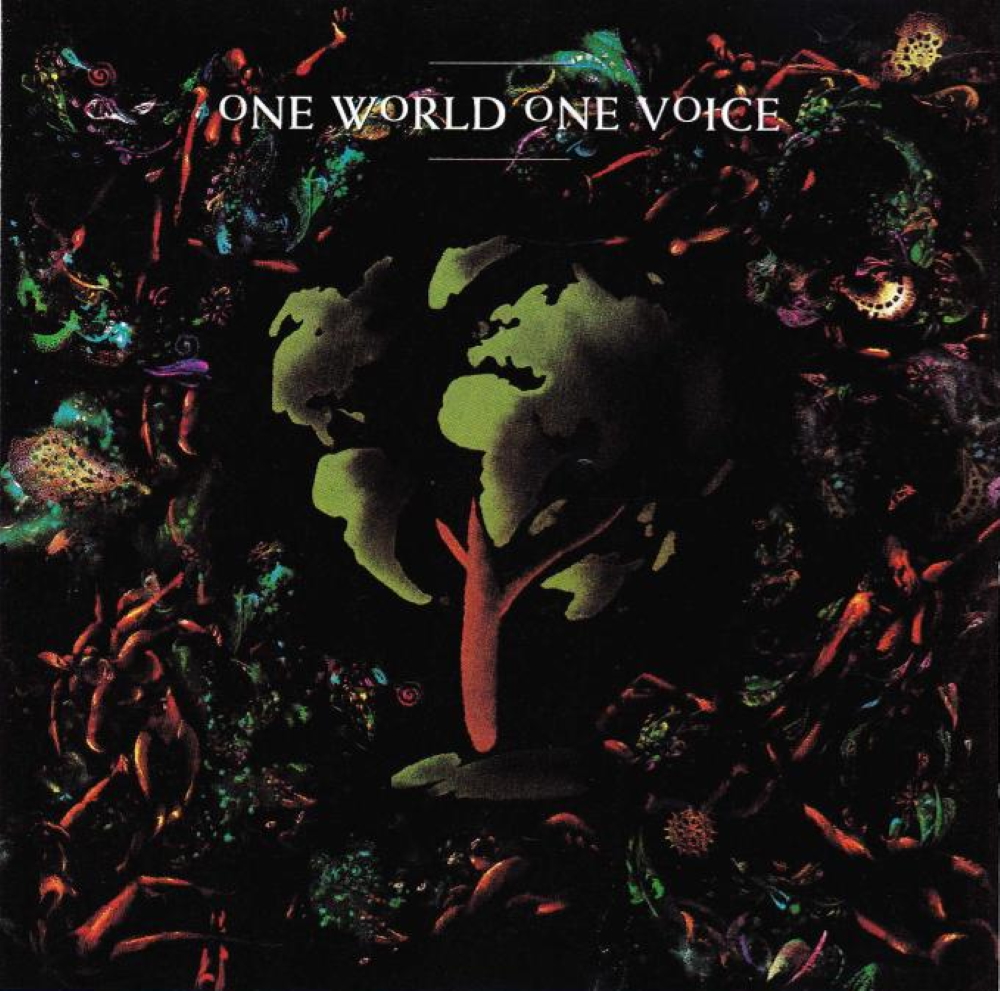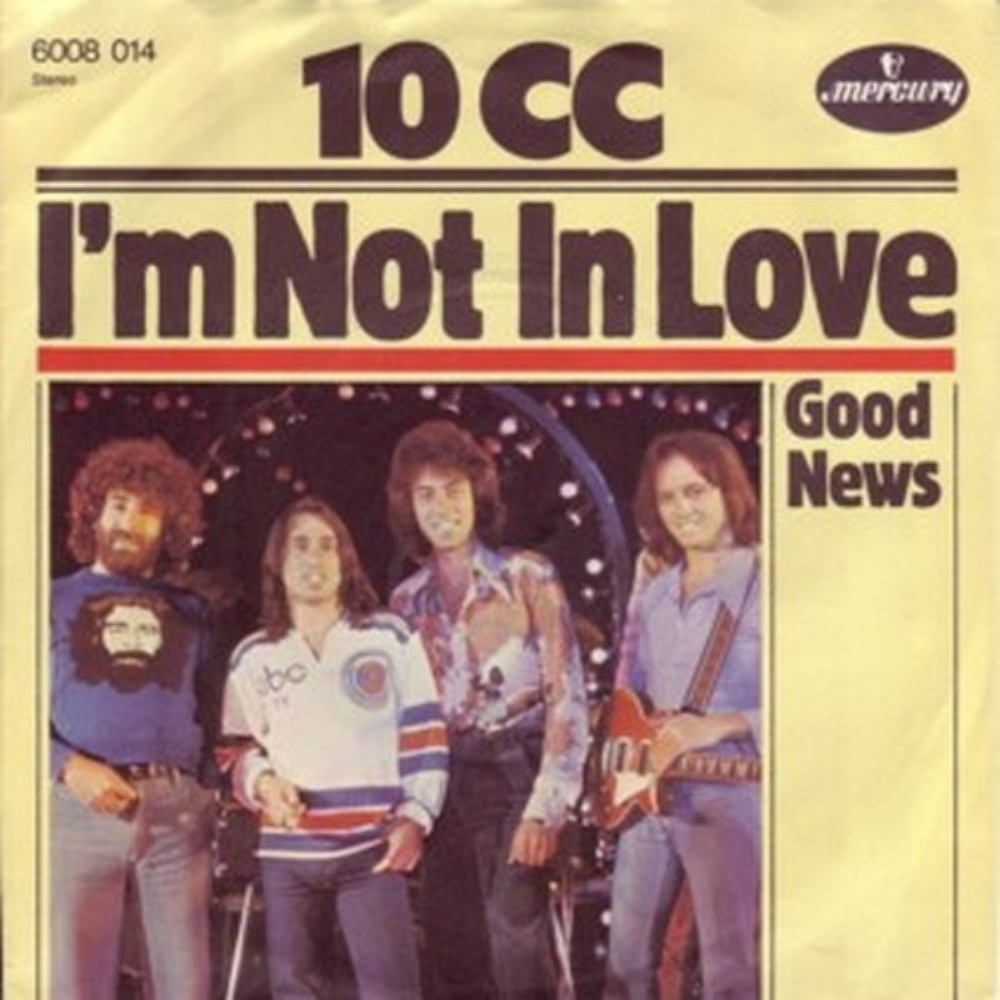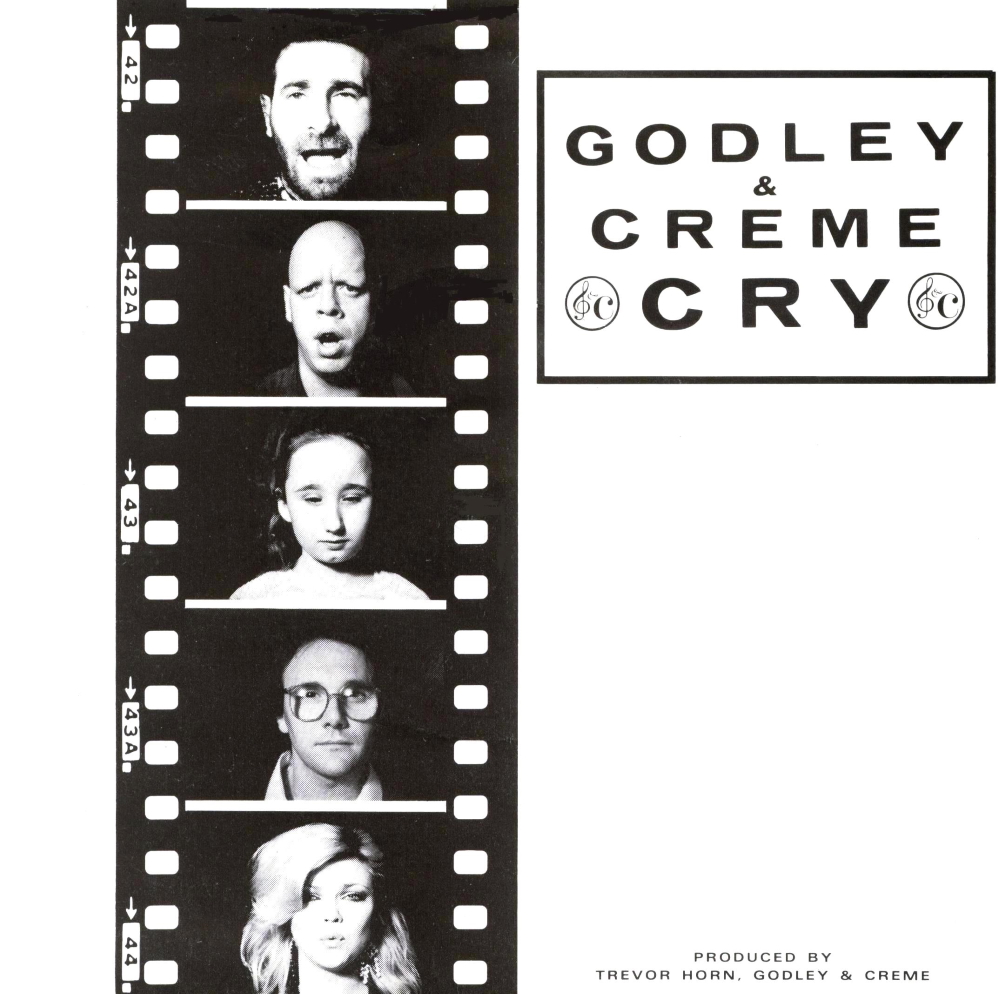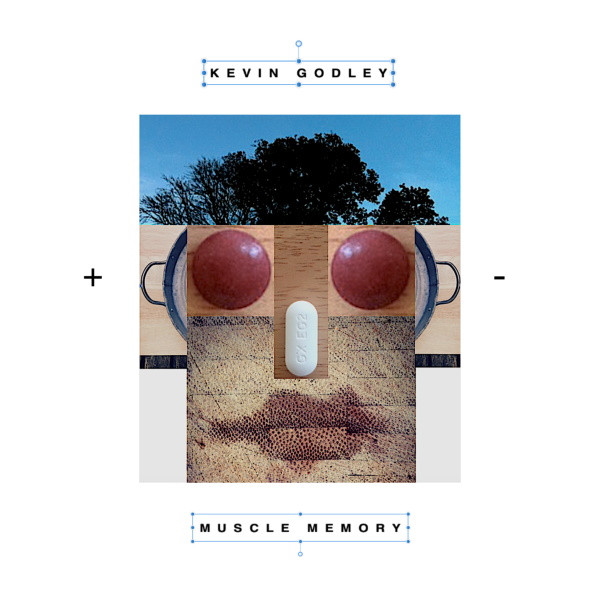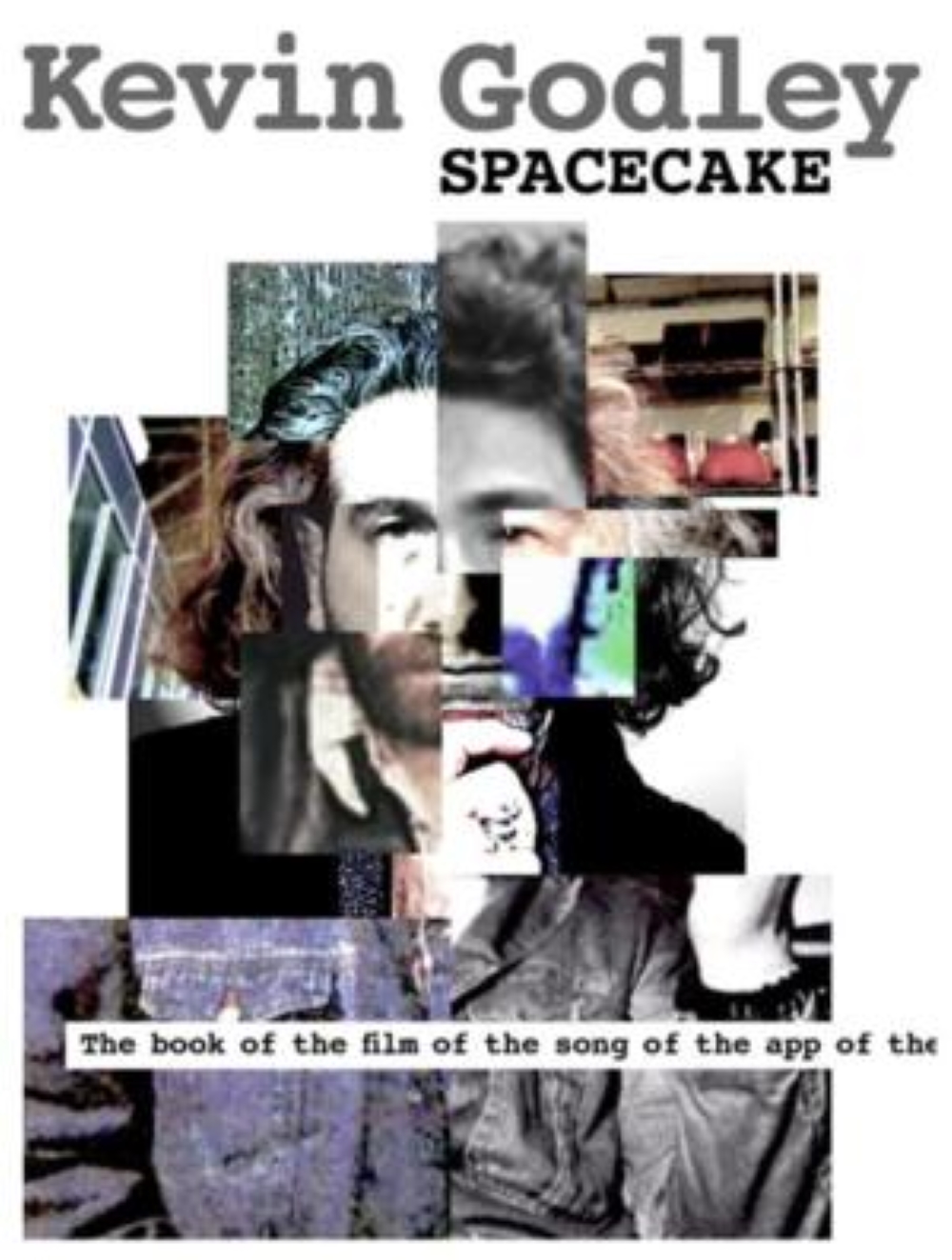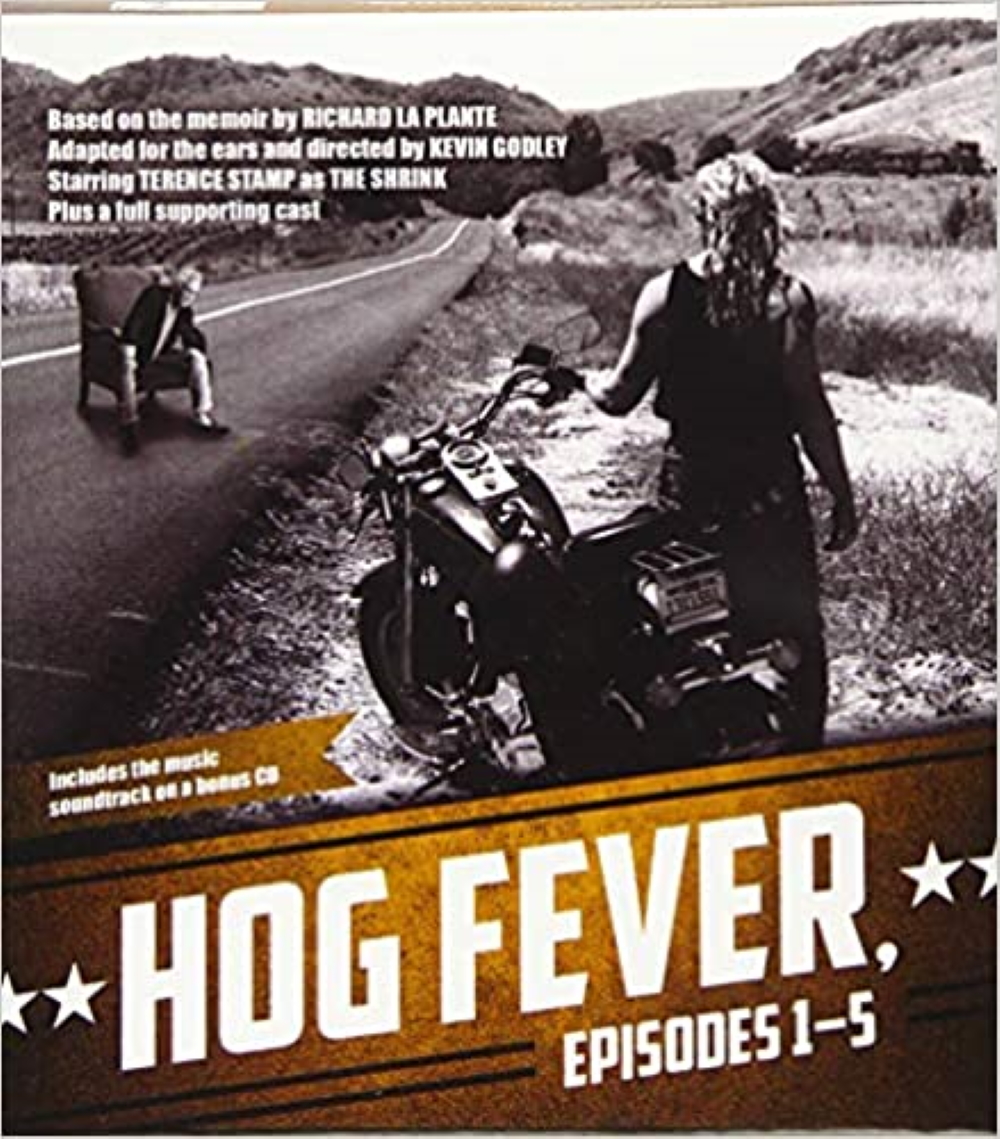Kevin Godley
music video director / musician (former 10cc/'I'm Not In Love')
GB / Ireland
'I'm Not In Love', the song classic from 10cc that won "Best Pop Song" and "International Hit of the Year" in 1975. Godley & Creme's "Cry" - composition and groundbreaking video that is one of the "30 All-Time Best Music Videos" according to 'TIME Magazine'. Musicvideos from U2 ('Numb', 'Sweetest Thing'), Phil Collins ('Dance Into The Light'), Herbie Hancock ('Rockit'), Peter Gabriel & Kate Bush ('Don't Give U'"), Sting ('Fields Of Gold') to the Grammy-nominated Police 'Synchronicity Concert'. The link between all these different projects is the British multi-instrumentalist (drums, vocals, keyboards, cello) and music film director Kevin Godley, who pioneered the clip genre and stylised it into an art form. The creative mind has consistently focused on innovation in his artistic activities in various fields and has created the unconventional in many ways by constantly reinventing himself.
Kevin Godley
music video director / musician (former 10cc/'I'm Not In Love')
GB / Ireland
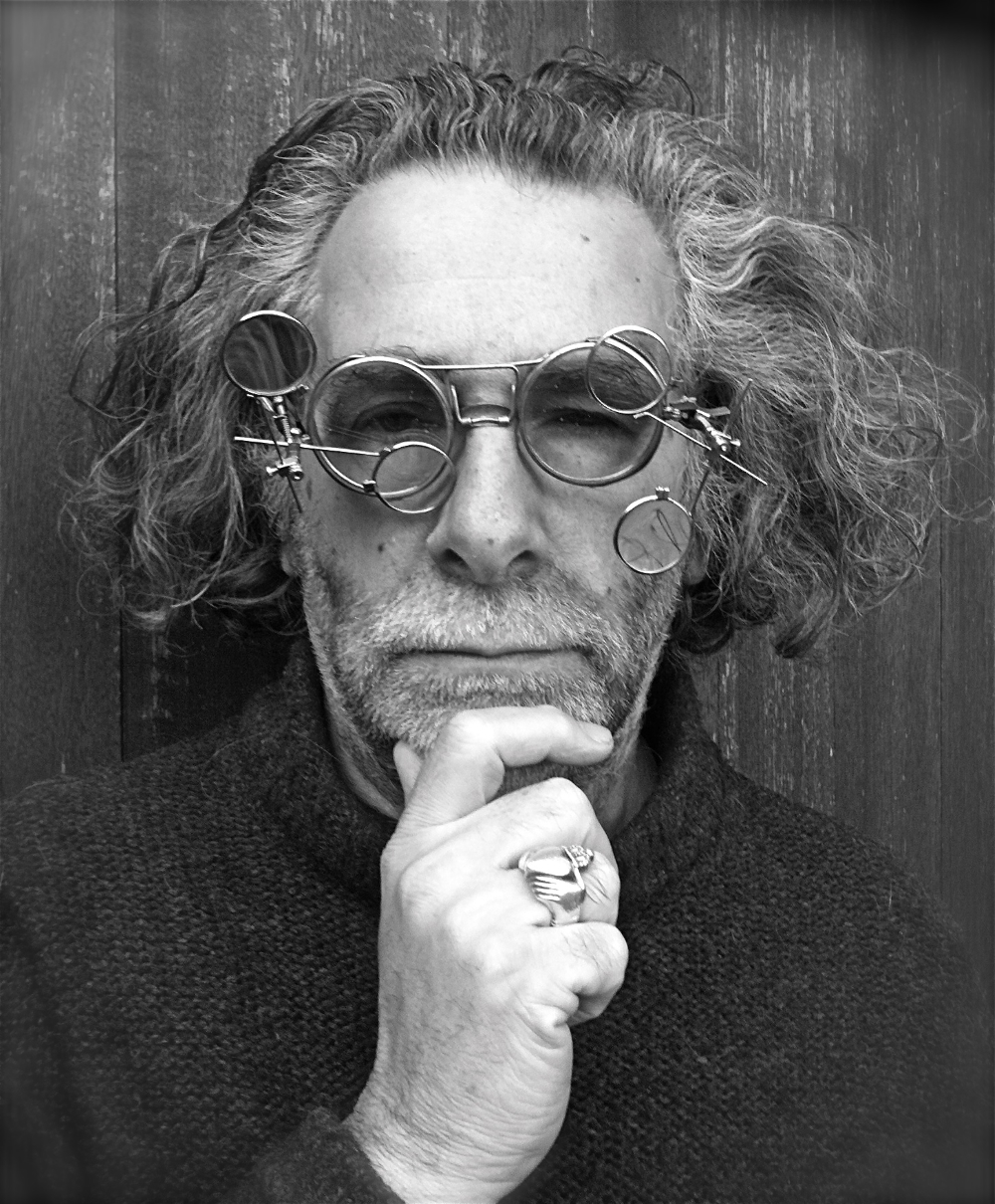
Kevin Michael Godley was born on 7 October 1945 in Prestwich, not far from Manchester. The son of a family with Jewish ancestors, was already a member of a band during his time at North Cestrian Grammar School, studied graphic design at Staffordshire University, did his Master of Arts there and originally wanted to become a comic artist. In 1970, he formed the Hotlegs (hit: 'Neanderthal Man') with Eric Stewart, Graham Gouldman and Lol Creme, a multi-instrumentalist who studied art and whom Kevin Godley had known well from an early age and had collaborated with as illustrator for the books 'The Charge of the Light Brigade', 'Cromwell' and 'The Railway Children'. In 1972, 10cc emerged from this. Their debut single 'Donna' already reached number 2 in the UK charts. The follow-up 'Rubber Bullets' even climbed to the top position. The reason for their success: 10cc sounded like no other act at the time, combining both commercial orientation and the claim to be avant-garde. 'Sheet Music', their second album, offered even more cleverly made, sophisticated and catchy sound art pieces with witty lyrics. The decisive factor was the personnel constellation: on the one hand, the experimentation and risk-taking Godley/Creme (they invented Gizmotron",an effects device for guitar/bass, in 1973), on the other hand, the mainstream pop-oriented Stewart/Gouldman. A contradictory mixture at first glance, but one that successfully guaranteed extraordinary results. Their song 'I'm Not In Love' is an example of the positive dynamics such internal contradictions could bring about. Originally conceived by Stewart/Gouldman as a bossa nova, it was completely turned upside down in time-consuming detail work at Kevin Godley's suggestion: the quartet recorded a virtual choir on 256 audio tracks and the hit (which has since been 'covered' by over 120 performers!) and at the same time a milestone in music production were born'
In 1976, one half split from the 'Fab Four of the 70s' (The Guardian), but returned just one year later as Godley & Creme. Their debut work: the three-record concept album 'Consequences' about the end of the world. However, this reunion duo was not only musically active, they also quickly established themselves as a highly imaginative and influential film team in the then new music video industry; more than 50 clips were made by them. One of the many highlights in their portfolio: the glamorous, fast-paced 'Girls On Film' (Duran Duran), which caused a scandal in 1981 because it was too erotic. They received five MTV Music Video Awards in 1983 for 'Rockit' (Herbie Hancock) - including "Best Concept Video" and "Best Special Effects". Their clip creation in their own song matter was also groundbreaking: In 'Cry' in 1985, the analogue precursor of the morphing technique was used, in which, for example, one face is superimposed congruently on another (to be seen again in 1991 during Michael Jackson's 'Black or White').
In 1988 Godley and Creme, who as former art students had published the bitterly brilliant, richly illustrated satire 'The Fun Stars Here - Out-Takes From A Rock-Memoir' in 1981, separated after a total of seven studio works. The former continued under his own name - as a producer of TV commercial jingles for Duracell ('World Cup '98'), Pepsi Cola, Texaco or Toshiba; as an artist, among other things, with a very ambitious charity project that focused on worldwide environmental destruction and global poverty: The CD including documentary film 'One World, One Voice' (1990) was the first world music 'chain letter'. Participants were: David Gilmour (former Pink Floyd), Peter Gabriel (former Genesis), Bob Geldof, Eddy Grant (Guyana), Ryūichi Sakamoto (Japan), Johnny Clegg (South Africa), Milton Nascimento (Brazil), Nusrat Fateh Ali Khan (Pakistan) and many others. The transgressive idea of yesteryear was taken up again by Kevin Godley, who has been a vegetarian ever since, almost two decades later in a new respect. His revolutionary music platform called WholeWorldBand (changed name to Youdio later on), developed for the iPad (and an app for iPhone), combines audio and video in the form of a virtual recording studio accessible worldwide. Amateurs can cooperate there with professionals like Ronnie Wood (The Rolling Stones), The Edge (U2), Dave Stewart (ex-Eurythmics), Taylor Hawkins (Foo Fighters), Stewart Copeland (ex-The Police) or Michael Bublé. Godley, who has been sporadically recording songs again since 2006 with former 10cc-partner Gouldman as GG/06 and released 'Muscle Memory' (his first solo-album!) in 2020, has also published his memoirs on iBooks as an interactive e-book under the title: 'Spacecake'. In 2016, he collaborated on the audio play adaptation of Richard La Plante's best-selling book 'Hog Fever', which is touted under the catchy marketing tagline 'Ear Movie'.
The bearded Brit lives with his wife Sue, an artist, and dogs in the Irish coastal town of Wicklow, 42 kilometres south of Dublin.
Interview October 2015
Extraordinary: 256 audio-tracks & morphing-pioneer
ABOUT INSPIRATION & INTUITION
Is intuition reliant on spontaneity or is it possible to engage this spiritual resource at any time, consciously? If so, how?
There’s a word you missed out - Imagination! It’s the backbone of everything we’re talking about. We have it in abundance when we're kids, trying to make sense of the world, but it can wither, if we stop using it, because it's a muscle that needs exercising like any other. I believe creativity is the grown-up application of imagination, well…not that grown-up, thank goodness. I play at being creative. I don't work at it. Now…I don’t want to confuse intuition with inspiration. They’re both incredibly powerful states, but intuition provides a quick snapshot of worth. People, situations, options - is this to be embraced or avoided? And spontaneity? Intuition by its very nature is a spontaneous reaction - and spontaneity is reacting intuitively, without thinking, which throws light on how thought isn’t always part of the creative process. As for engaging both consciously, what any of us make, be it music, film, architecture, industrial design, whatever, it’s all driven by intuition, emotion and spontaneity. Let’s not forget emotion! Rarely are creative impulses driven by fact or reality. The big 3 - I(ntuition), E(motion) & S(pontaneity) - are the fuels that power the part of your mind that is spinning all the time, looking for clues - you’re just not always aware of it.
How important is the own physical constitution? Is it true that sadness equals creativity (or vice versa?) To quote the writer Miller Williams: „the saddest joys are the richest ones“…
I don’t have to be fit to create. My training regime involves much sitting, because sitting is my natural creating state. Sadness can be all consuming, as can euphoria, or any strong emotion, but they can hamper instant creative momentum. That’s my experience anyway. If I’m despairing, I’ve no energy to create and if I’m ecstatic, I want to wallow in the moment. Any big emotion gets in my way, if I’m trying to feed off its‘ immediacy, but it can certainly inform, what I turn it into after the event. In other words, for me, emotion fills the same spaces creativity does, so a little distance and objectivity helps me to process it and make it work for me.
Do calm and relaxation further the „best“ or is a tight deadline a stimulant for creativity?
Both can work, but what I do usually, comes with a deadline attached, so my mind has trained itself to work quickly.
Which place/what environment is best for the creation/work process?
Two places:
A) My workspace - a landfill of artefacts, books, magazines, records, notebooks, computers, cables, printers, pictures and
B) My head - which is somewhat similar to the workspace.
What, if there is a deadline, but no intuition?
1) Check my reserve of archived ideas.
2) Walk the dogs and forget about it.
3) Watch a great film/listen to amazing music. Result: A profound marker telling me how great art can be.
4) Back to the workspace and try again. Still nothing?
5) Watch another film, a bad one; listen to another record, a really bad one. This tells me anyone can do better…including me!
6) Back to the workspace and try again.
Before intuition is inspiration the primary catalyst? If so, what inspires you?
A sound. A sight. A memory. Anything and everything and if whatever it is sparks a response, then a further response and so on. In a word - a catalyst.
How do you separate the good from the bad, how do you know which ideas to explore further, which ones are maybe even ahead of their time, visionary ideas and which are not?
It’s simply a matter of personal taste, what excites me. I might think a particular idea will look or sound extraordinary, but someone else might not. I’m not a fine artist, I’m a commercial artist but I think like a fine artist, which means the two can crossover. So, if I’m creating for an audience of sorts, it’s useful to get early feedback, but if it’s a self generated project, I mostly stick with my own council. It’s a funny thing, but time can also play a part. An idea that felt great last night might not feel so good in the morning, or vice versa. So I always pay close attention to that intuitive monitoring system. It’s way more reliable than thinking. As for exploring ideas further, it’s having a sense of completion. Does this idea have more things to say or not, does it take me anywhere else or not?
What key criteria does the idea need to be viable?
Just one. It has to excite me first. I have to believe that the world will be a slightly more interesting place if I can make the idea real.
Do you write down an idea right away (and archive it), because you might forget?
I’m not always able to. If I’m driving or in a meeting it may not be possible, so I rely on the fact that if it’s a really good idea, it’ll stick in my head until I can jot something down.
Do you feel if an idea has the potential to be something big?
Sometimes, yes. But the impending size of any idea can be affected by forces outside your control. The bigger the idea, the more involved the forces. That doesn’t prevent a sense of its‘ potential filling you up, however - and it can fill you up. All the corners. All the cracks. All the questions answered. That is one serious adrenalin rush!
How long do you ponder an idea before creatively working on it?
As long as I get the basics down in some form it can wait until I’m ready - or I can wait until it’s ready. But it’s never out of ponder mode. Before, during or after.
ABOUT CREATIVITY
What is the process like from theory/idea to a practical creation?
Stage one is emptying my mind, as thinking as such, has rarely anything to do with it. I just immerse myself in the sights, sounds and needs of a project. What’s required? What should this thing feel like, sound like, look like? Is it complex, simple, soulful, stupid? These are pretty direct questions, but my mind doesn’t ask them, literally - it gropes past them, acknowledging them towards a vague shape that’s forming. Again, if the sub conscious spinning thing is functioning well, something will pump out when I least expect it and, should it be good, it feels like it was there all the time plus it makes some kind of perfect sense even at this blurred, incubation stage. Throughout its evolution, from concept to creation, an idea may change shape many times along with its window dressing, but the original thrust/core will stay intact, if the concept is solid. The most difficult part of making ideas real is the involvement of other people. If it’s anything other than painting or sculpture or photography it involves deploying a wealth of other talents who need to be guided to deliver my initial vision. This can be fun or a bitch as any outside influences can improve or destroy what I’m aiming for. Thankfully I’ve built a reliable, like-minded resource of people, so any additions to the work are usually positive. Okay, so once it exists in tangible form, it’s hopefully kind of how I saw or heard it during incubation, although, finally, there’s no frosted glass or cotton wool blurring my perception. Sometimes it's better too, but sometimes it's not. Then there’s the anti - climax. The sense of achievement followed by the come down…is it as good as it could be? Why did I do this? Why didn’t I do that?
Can you force creativity or are „drive“ and efficiency counterproductive?
Either can work. Pushing myself is fine. Others pushing can be less than helpful. It’s really more to do with how engaged I am. If it’s filling me up I can forget where I’m going, drive miles past my destination, not hear what people are saying, go glassy-eyed. I tend to lose the present, because all I’m seeing and hearing is ‘the idea!’ This is an embarrassing semi trance/obsessional state and I’m not sure that it’s healthy, but I am sure that it’s necessary. If I can’t shake an idea off, I know I’m onto something. On the other hand ideas can come from being totally disengaged and I’ve no idea why. It’s as if I have a few spare conceptual parts tucked away in an old mental toolbox and they half-heartedly show themselves, because they just might screw into this idea I’m not really thinking about. That doesn't quite answer your question does it? Please forgive me, if the questions occasionally send me off at a tangent.
How do you stimulate your creativity/are there specific rituals therefore or a muse?
I used to smoke hashish, which involved a lot of ritual, but it was more a delaying process than anything. Preparation was everything. Am I now ready to Create? I realised, after a while, that all this tactical stuff could take me to the other side of where I needed to be and also utterly removed any sense of objectivity which is essential if my ideas are for public consumption. Now I simply switch to the empty place and trust.
Which is better for creativity: discipline and structured time-management or idleness?
Neither and both, or any combination of.
Do age and life experience help with creativity or is a younger mind more creative, because it is fresh and untouched by experience? What about social/cultural heritage?
I feel more creative now than ever and more confident. Perhaps it’s because I’ve learned to trust the ever-evolving process. I also have a million more experiences to draw from because, in the final analysis, I’m not casting the net any wider than myself. Creativity is water divining without the forked stick and we're – what? - 90% water. Also, if I’m deep into the task, I sense that the idea already exists somewhere inside me, so it’s just matter of clawing away the crap until I find it. Social/cultural heritage? Not sure either make a difference, not consciously anyway, other than feeling like an artist thinking like an artist and trying to be an artist. Maybe it’s because I decided to be an artist at a very early age, so I believe it to be my social and cultural role.
Do you archive certain ideas to maybe check back when you are in a less creative phase?
Of course. I have more ideas than outlets for them, so they do tend to stack up. Sometimes they can help kick start a way to something new.
Is it better to be creative on your own, only trust your own instinct, or in a team? However, in a team - how much of your own, personal idea is really left afterwards?
I prefer to start on my own. Well, the two of us. Me and me - the spinner and the catcher. If my idea becomes part of a team effort, I try to let go, which can be hard, because it can drift and get lost. But, as I said before, other talents can bring great nuances to an idea in flux. On the other hand, they can also fuck it up. It’s a fine balance between being precious and protective. Again, an intuitive response is usually the most reliable.
Who’s leading in the creativity-process: craftsmanship or spontaneous intuition/inspiration?
S(pontaneous) I(ntuition), I(nspiration) - every time.
Which roles play aspects such as sincerity, authenticity, self-doubt when it comes to creativity and are they useful for the creative process?
I trust them all to be present to some degree, because I have to believe in the idea and if it’s false or insincere, then the idea isn’t ready to be taken seriously. Self doubt is always there, but I try to use it as a speed bump to motivate me. If it was always an easy ride, there would be no challenges to overcome.
Is creativity mostly a fun process or one that means blood, sweat and tears?
It’s the thrill of the chase, which usually starts with the terror of the blank page, tape, computer screen etc. . If something comes I jump on it, wrestle it to the ground, examine it, inside and out. Then, if I like it, the real work begins. Sculpting air is an exhausting business.
What is your personal motivation for creative activity?
I can’t help it. It’s what I do. If I’m not churning some idea round, or half way to making it real, I’m stagnating - which makes for a good, fully rounded creative, but not necessarily a good, fully rounded human being.
What role does perfection play when it comes to creativity? Is a completely perfect opus soulless?
It depends how you define perfection. Something with a punk aesthetic is rarely perfect. Perfect in a generic way, that is, as in smooth, shiny, pretty and polished, but it may inhabit its own ragged perfection by fitting a brief perfectly. In other words: Perfection is a matter of the right fit - and that, by definition, can be an uncomfortable fit.
How much does routine influence creativity?
It can disguise a lack of it, but only for so long. It’s possible to coast along doing what you know works, drawing on past successes. God knows, we all do it, if we have to, but don’t get lazy and rely on it. If you’re creating average work, because you’ve lost your mojo, you’ll get found out sooner or later. And, nine times out of ten, they’ll notice it before you do.
How is it possible to stay true to yourself artistically, but stay innovative at the same time? Can you keep re-inventing yourself without renouncing/denying your style?
It may sound pretentious, but I hope innovation is my style. At least, that’s what I’m always aiming for. I shy away from ideas that are only cosmetic or just fit the bill. I only hope that in pursuing innovation my work doesn’t come across as being contrived or trying too hard.
Is it desirable to be ahead of your time or does it cause to be misunderstood (or not understood at all)?
It’s a great feeling, knowing, you’re the first person to consider something in a new way. Then again, as no one has tried it yet, your idea is your own lab’ rat. There are no stats to refer to. There’s no precedent, nothing on ‚Wikipedia‘, no books, advice, nothing. All you have is your intuition and belief. What can possibly go wrong? I think innovation is for stress junkies so, much as I hate stress, I guess I must be one. The stakes are always higher too, but for better or worse I want to change the damn world, not just follow the changers.
When does the time come to end the creative process, to set the finalized work free - or is there a never-ending possibility of improvement?
When someone, usually a producer with a practical handle on budgets and deadlines, insists that I STOP!!! That doesn’t mean I stop obsessing about that one little tweak that would make it so much better…
ABOUT SUCCESS
When something is successful, how big is the temptation to recycle it, to repeat the successful prototype?
I’ve tried it and it doesn’t quite work for me.
Should you be able to predict characteristics, needs and desires of your potential audience to be successful?
God, I hope not, because that implies I’d know exactly, what is required to make every idea a hit idea. So I’d never need to experiment or be daring which is the entire point! My accountant would kiss my feet, but I’d need counselling…
Do you have to be driven, do you have to be addicted to achieve the next time, what didn’t work this time?
The deeper the addiction, the better chance of it working every time.
How do you deal with a moment, where your individual, perfect work has been created, maybe has been praised and nominated with all possible awards – what will be next? Or is the personal peak also “the end”?
I’d be very happy for that to happen. Success isn’t just about the work itself as you know, it relies on marketing, profile, salesmanship, trending etc. . All the noise and outer trappings of the inner work that so - called specialists control. I’ve had many praised works fail and many hated works succeed, so I wouldn't mind a few more, where those two positive qualities synchronise. Oh, and there is no end…
If this is a possibility – is it even desirable to create the ultimate, perfect work?
Just perfect enough for the next one to be better.
MY FAVORITE WORK
„I’d say a TV music film I made for the BBC in 1990 called ‘One World One Voice.’ The inspiration was circumventing the BBC’s first thoughts on what they wanted me to direct - which was another ‚Live Aid‘-style concert. That felt a bit lame and lazy, so I was driven to find a new way to illustrate global musical harmony and collaboration. This one idea subsequently led to conceiving the ‚Youdio‘ (wholeWorldBand) video collaboration app, 18 years later.“
